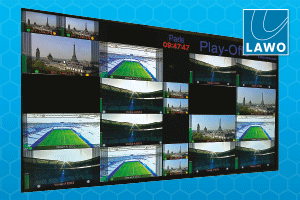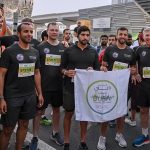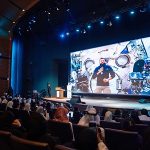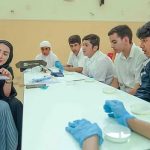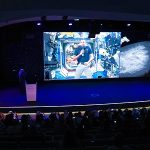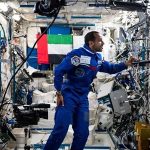During his time aboard the International Space Station, Al Neyadi conducted more than 200 scientific experiments, with his latest endeavour focusing on a host-pathogen study.
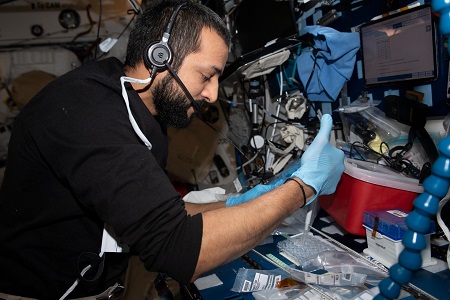 The Mohammed Bin Rashid Space Centre (MBRSC) has announced that astronaut Sultan Al Neyadi is scheduled to return from the International Space Station (ISS) on September 3, following his completion of the historic longest Arab space mission in history, spanning six months.
The Mohammed Bin Rashid Space Centre (MBRSC) has announced that astronaut Sultan Al Neyadi is scheduled to return from the International Space Station (ISS) on September 3, following his completion of the historic longest Arab space mission in history, spanning six months.
Al Neyadi along with NASA astronauts Stephen Bowen and Warren Hoburg, and Roscosmos cosmonaut Andrey Fedyaev, will depart the International Space Station (ISS) aboard the SpaceX Crew Dragon spacecraft Endeavour on September 2. Donning their pressure suits, the team is set for a splashdown off the coast of Tampa, Florida in the Gulf of Mexico on September 3.
Prior to initiating the deorbit sequence, stringent checks will be performed, especially pertaining to forecasted weather conditions and recovery readiness at the designated splashdown location.
The Dragon spacecraft will autonomously undock from the ISS on September 2 and perform a series of departure burns to move away from the orbiting laboratory.
If required, a series of orbit-lowering manoeuvres will be done on the spacecraft that line up its ground track with the desired landing location.
The spacecrafts two drogue parachutes will deploy at 18,000 feet followed by four main parachutes that deploy at 6,500 ft.
Under four main parachutes, the spacecraft will safely touch down at a velocity of 25 ft per second and autonomously release its parachutes off the coast of Tampa, Florida in the Gulf of Mexico on September 3.
The longest Arab space mission in history was launched on March 2 at 9:34 am (UAE time), aboard the SpaceX Dragon Endeavour spacecraft.
Over the course of the mission, Al Neyadi was involved in over 200 experiments, partnering with international space agencies and esteemed UAE and global universities. His contributions span diverse fields, including plant genetics, human life sciences, exploration technology, fluid dynamics, material science, protein crystallisation growth, and advanced exploration technologies. These experiments have been instrumental in helping the scientific community, researchers, and students in the UAE and around the world become an integral part of the mission, supporting it in various capacities. Al Neyadi also accomplished a number of firsts for a UAE astronaut during this mission, including becoming the first Arab to complete a spacewalk, alongside his fellow crewmate NASA astronaut Bowen.
Al Neyadi further engaged in 19 educational and community outreach events called the “A Call from Space” series, in which over 10,000 people from all walks of life took part and interacted with the Emirati astronaut through live video calls and ham radio sessions.
As the mission approaches its conclusion, the Crew-6 team is currently involved in the handover activity with Crew-7 astronauts, who successfully docked and entered the ISS on August 27 at 6:58 PM (UAE time).


